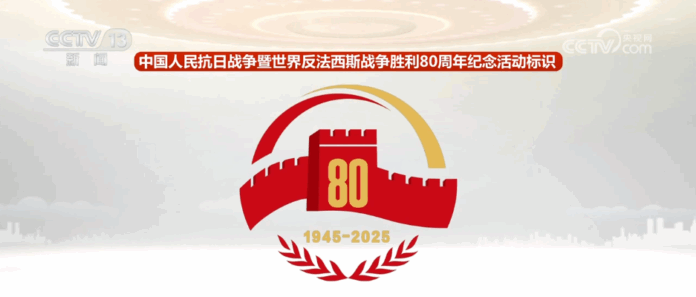
On June 24, the State Council Information Office of China held a press conference to announce a series of events commemorating the 80th anniversary of the victory in the Chinese People’s War of Resistance Against Japanese Aggression and the World Anti-Fascist War. Ten commemorative activities are planned, the first of which is a military parade scheduled for the morning of September 3.
This large-scale commemoration, particularly the military parade, reflects both historical and contemporary considerations. The significance of the occasion can be analyzed on two key levels: reaffirmation of historical truth and response to current international instability.
The commemoration serves as a reaffirmation of China’s critical role in World War II. Eighty years ago, the global anti-fascist coalition—comprising countries such as China, the Soviet Union, the United States, and others—defeated fascist regimes, including Nazi Germany, Italian fascism, and Japanese militarism. This global victory laid the foundation for the current international order centered around the United Nations.
However, in recent years, efforts to distort or downplay parts of that history have emerged. In Western discourse, the Soviet Union’s contributions to the European theater have increasingly been minimized. A recent poll in France indicated that younger generations tend to view the U.S. military’s role as surpassing that of the Soviet Red Army. Similar revisionist trends have appeared in Asia, where some elements within Japan continue to evade full responsibility for wartime atrocities, fostering ambiguity and denial regarding historical facts.
China maintains a clear position: the Soviet-German front was the main battlefield in Europe, and the China theater was the principal front in Asia. Despite limited resources, China sustained prolonged and tenacious resistance against Japanese aggression for over a decade. In stark contrast, several well-equipped European nations capitulated shortly after Nazi invasions—Denmark in six hours, the Netherlands in five days, and France in just over a month.
China’s endurance prevented Japan from redirecting its forces to other regions such as Southeast Asia, Australia, or even the Middle East. Former U.S. President Franklin D. Roosevelt, in his 1942 State of the Union address, acknowledged China’s vital role, emphasizing the country’s resilience in the face of bombing, starvation, and superior enemy weaponry. In his memoirs, Roosevelt further noted that a Chinese defeat would have enabled Japan to deploy additional divisions to other theaters, potentially altering the outcome of the war.
This long-forgotten reality underscores the importance of the current commemoration. By preserving historical truth, China seeks to counteract growing trends of historical revisionism and to honor the sacrifices of the wartime generation.
Beyond its historical message, the commemoration also addresses current international concerns. Global tensions are escalating due to conflicts such as the Russia–Ukraine war, the Gaza conflict, India–Pakistan hostilities, and the Iran–Israel crisis. Some international observers have even speculated about the possibility of a third world war.
In this context, a military parade serves as a visible signal of China’s commitment to maintaining global peace and regional stability. Demonstrating military readiness is not merely symbolic; it functions as a deterrent to war and aggression by showing that China possesses the capacity and resolve to contribute to peacekeeping efforts.
The geopolitical significance of this year’s commemoration is further underscored by diplomatic developments. On June 22, Russia confirmed that President Vladimir Putin will visit China in late August to attend the military parade. This visit reciprocates President Xi Jinping’s presence at Russia’s May 9 Red Square parade, held to mark the 80th anniversary of the Soviet victory in the Great Patriotic War.
An additional dimension to this year’s events is the potential for symbolic trilateral diplomacy. On June 5, the presidents of China and the United States held a 90-minute phone call, during which President Xi reportedly invited former President Donald Trump to visit China again. Given the historical alliance between China and the United States during World War II, this invitation—if aligned with the September 3 parade—would carry powerful historical and diplomatic resonance.
From 1941 to 1945, China and the United States cooperated closely against Japanese militarism. The U.S. provided significant military aid through loans, equipment, and operations such as the Flying Tigers, while the Chinese people warmly received American forces. The parade could serve as a reminder of this shared legacy of resistance and cooperation.
A joint appearance by the heads of state of China, Russia, and the United States at the military parade would send a strong message of unity in the face of modern geopolitical uncertainty. It would demonstrate that peaceful coexistence and diplomatic engagement among major powers remain possible—even during turbulent times.
Such a display would not only reinforce historical memory but could also promote global stability by discouraging unilateralism and militarism. Revisiting this shared history may offer a foundation for renewed cooperation among the world’s most influential nations.
Source: socio gov, xinhua, cctv



